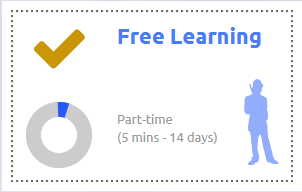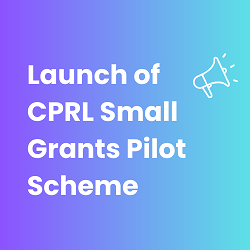You are here
- Home
- Learning
- Free Learning
- Achieving Evidence-based Policing
Achieving Evidence-based Policing

These free resources are organised into categories aligned to the College of Policing Curriculum and in agreement with police experts. You can study them at any time and anywhere.
Select the duration of study below and you will be taken to resources that match that duration
| An hour or less of study | 1-7 Hours of study | More than 7 hours of study |
|---|
An hour or less of study
Developing good academic practice
It’s important for you to understand the rules of the academic world right from the beginning of your studies. This course is intended to help you develop good academic practices in your studies and when producing assignments and completing assessments. Although designed as a course to work through, the content can also be used to dip in and out of, if you feel you need to improve your skills in a particular area.
Type of activity: Course
Evaluating the quality of information using the mnemonic PROMPT
The ever-increasing volume of online information available means it is important to think critically about what you find, especially if you are going to use it for study or work purposes. The OU Library has developed PROMPT, a way of evaluating any kind of information. You can use this structured method for evaluating any information you find online, and use it in your studies and beyond.
Type of activity: Learning resource
1-7 hours of study
Conversations and interviews
What questions should you ask in interviews? In this course we focus on learning about, and so developing, skills in using particular inquiry methods connected to conversations and interviews. There are many ways of distinguishing between different methods of gathering information by asking people questions. In this course you will understand how to decide between the subtle different approaches needed of interviews.
Type of activity: Course
This course teaches you about the importance of ethics in research that is undertaken by psychologists. You will read about the famous study on obedience conducted by Stanley Milgram, and watch two psychologists talk about their research with meerkats and chimpanzees. Giving you an understanding into the ethical issues concerning research involving non-human animals
Type of activity: Course
More than 7 hours of study
This course takes your life as its starting point, developing your awareness of just how much you have already learned and what you are capable of. It will suggest ways of 'fine-tuning', and building on, the expertise you have developed in your life. You will also learn some interesting theories about how we learn, and some of the key skills and tools to make your learning a success.
Type of activity: Course
This course explores the development of the research process looking at the different perspectives from which an issue or phenomenon can be investigated, highlighting methodologies that can be used to investigate a business issue. This course will sustain the development of a research study.
Type of activity: Course
News
- New course launched on “Understanding PCSO powers” 14th March 2024
- CPRL Collaborative dates for your diary 28th February 2024
- Government backs new pet abduction law in pet theft crackdown 8th February 2024
Upcoming Events
Online Seminar: Trust and confidence in policing
Wednesday, May 22, 2024 - 13:00 to 14:30
Online Membership Group Meeting
Thursday, June 13, 2024 - 10:30 to 12:30
